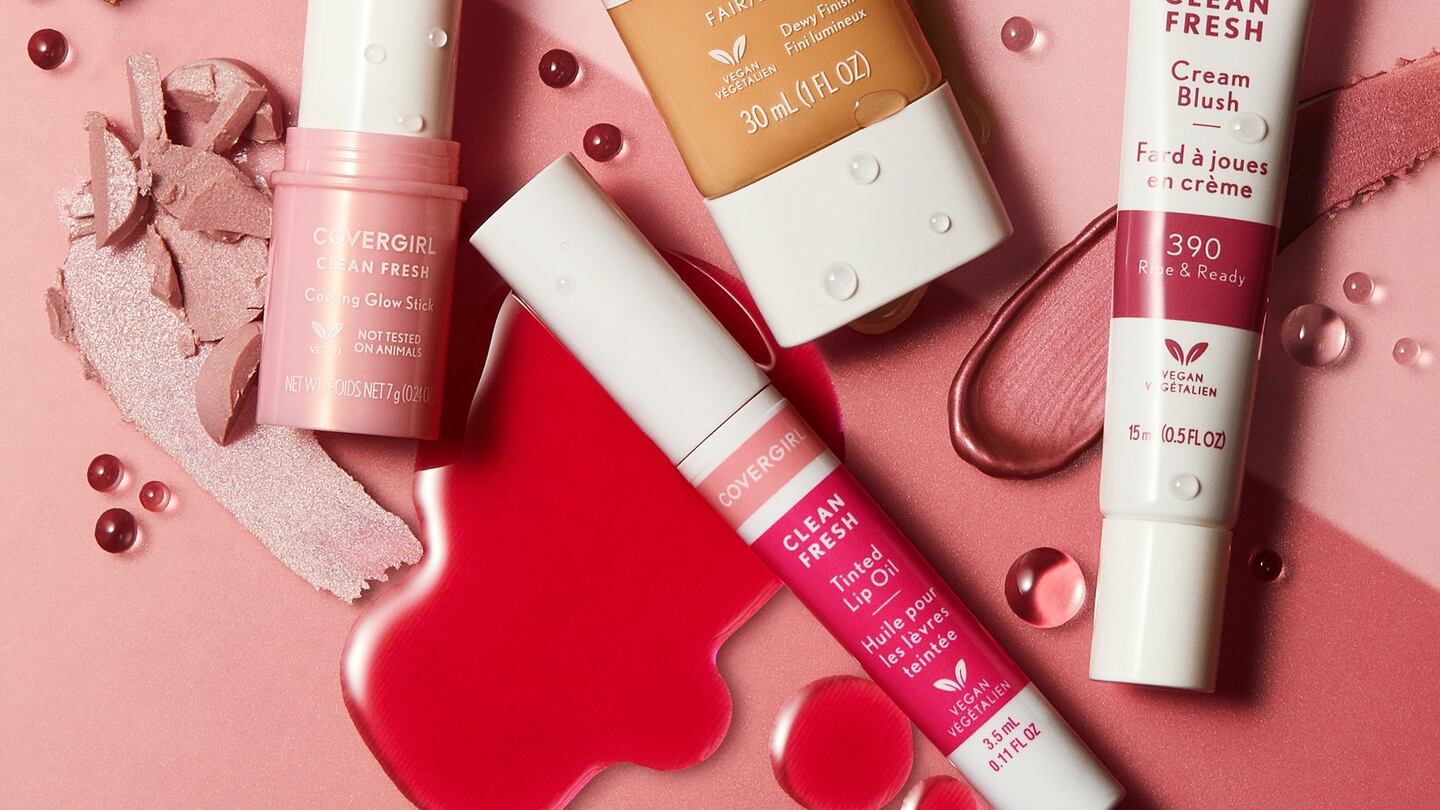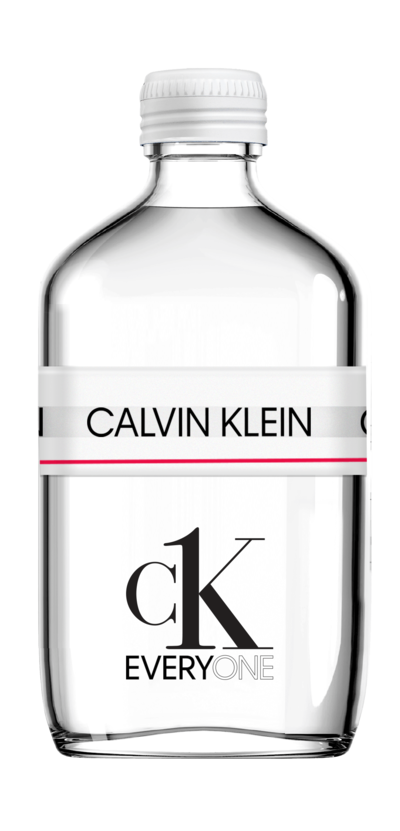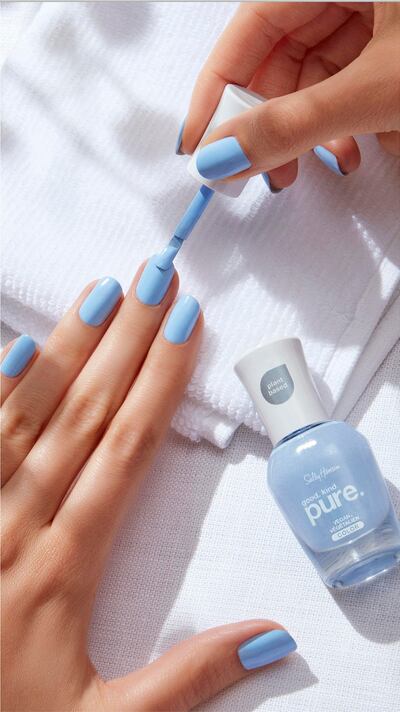
The Business of Fashion
Agenda-setting intelligence, analysis and advice for the global fashion community.

Agenda-setting intelligence, analysis and advice for the global fashion community.

Welcome to BoF's Beauty Newsletter, featuring members-only analysis and the week's top news from the front lines of the global beauty business. Subscribe here.
NEW YORK, United States — Alberto Morillas is perhaps the most famous "nose" in the world. A master perfumer at Firmenich, a multi-billion dollar Swiss fragrance and flavour company, he's responsible for blockbuster scents like Calvin Klein CK One, Giorgio Armani Acqua di Giò and Marc Jacobs Daisy.
His newest creation is another Calvin Klein fragrance, “Everyone,” a CK One derivative that comes in a bottle wearing the brand’s signature elastic underwear band. The eau de toilette is being marketed as the brand’s first “clean” scent, boasting 79 percent “natural origin” ingredients (an ingredient must contain over 50 percent natural raw materials to be labelled “natural origin”).
Coty, the brand’s fragrance licensee, says Everyone is markedly cleaner than CK One, containing only naturally derived alcohol and a higher percentage of perfume oil coming from natural origin — 29.2 percent versus the original scent’s 22.8 percent.
ADVERTISEMENT
That’s not enough to get Everyone sold at a clean beauty specialty store like Credo Beauty, whose stringent standards for what can and can’t be included in a product are seen by many as akin to an industry standard. Coty isn’t disclosing the full ingredient list for either scent, another disqualifier at Credo.
However, Coty gets points for trying. The conglomerate has launched clean products with four of its brands in the last three months. Meanwhile, rivals like Shiseido and Unilever have bought independent clean brands while leaving the production methods of their core lines more or less untouched.
You have to develop from within.
“You can’t just buy all these brands,” said Andrew Stanleick, Coty’s president, North America, who oversees the consumer beauty and luxury businesses. “You have to develop from within.”
In December, Coty-owned Philosophy launched Nature in a Jar, five skin and body-care products free of over 30 “nasty ingredients,” including sulfates, phthalates and parabens. That same month CoverGirl released “Clean Fresh,” a four-item range of clean, vegan cosmetics, also free of the buzzword “no-no” ingredients. In November, Sally Hansen, another Coty brand, released “Pure,” a line of 30 shades free of many of the chemicals often found in polish.
How clean are these new lines? Depends on who you ask. An offshoot of the wellness movement, “clean” has no legal, or even universally accepted, meaning. US regulators ban about a dozen ingredients in cosmetics via regulations that haven’t been updated since 1938. The EU bans 1,300 ingredients by comparison.

Calvin Klein's "Everyone" scent | Source: Courtesy
Retailers and brands have filled the void with their own, sometimes conflicting standards. Sephora requires labels to meet guidelines to qualify for its “Clean at Sephora” programme, and multilevel marketing platform Beautycounter compiled a “Never List” of over 1,500 “questionable” ingredients it avoids. Credo Beauty, a retailer with nine locations, has the “Credo Clean Beauty Standard,” including a “The Dirty List” of banned substances.
Until last year, beauty’s global conglomerates largely steered clear of clean products. Their top-selling products rely on formulas developed before ingredients like parabens and silicones were labelled “dirty,” and the clean movement was too new to justify developing new labels in-house.
ADVERTISEMENT
That’s changing fast. More consumers want to know what’s in their products, and they are finding lists of allegedly harmful substances in popular beauty items via searches on Google and apps like Yuka and Think Dirty.
“There’s a risk ... that if they don’t [go clean] that consumers are going to walk away from their brands,” said Laura Gurski, senior managing director and global lead for Accenture’s Consumer Goods & Services practice.
Most major players have bought their way in instead. Drunk Elephant, an early mover in the sector, was acquired by Shiseido for $845 million in October. Unilever bought Tatcha for $500 million in June.
Product launches by big beauty brands are less common. Last week, Revlon debuted its first clean product, a primer verified by the Environmental Working Group, an organisation that monitors ingredient safety.
Emily Bond, head of fine fragrance in North America for Givaudan, a Firmenich rival, said “it’s not that hard” to make clean fragrance that meets the Clean at Sephora or Credo Clean Beauty standards. Bond said Sephora’s is the most requested by Givaudan clients, but Credo Beauty’s is tougher to qualify for.
“You can eco-design any fragrance,” Bond said. “But there are going to definitely be implications around cost, material you can use, where it can be produced – different things that some brands don’t want to deal with.”
For Coty, the risk is that consumers will see its brands’ clean lines and start asking questions about their other products. CoverGirl’s “Clean Fresh” is marketed as free of parabens and talc, but the brand’s Nudes TruNaked eyeshadow palette, a top seller on Ulta’s website, contains two parabens (though both are deemed safe by US or EU regulators), and talc is the second ingredient.
Stanleick said offering a clean alternative helps CoverGirl appeal to a broader audience.
ADVERTISEMENT

Sally Hansen's clean line | Source: Courtesy
“It’s not saying … the other products which aren’t ‘clean’ are bad. They’re all safe,” he said. “What we found is that in developing and crafting new formulas … which deliver on the [original products’] benefits – we were able to do that faster than we were able to re-engineer all the [original] formulas.”
Matching bestselling products’ attributes with clean ingredients can be difficult. For instance, Coty still hasn’t figured out how to create clean “longwear” nail polish, a category that represents about one-third of Sally Hansen’s business.
Fragrance has been slower than other categories, like skin, hair and colour, to embrace the clean space. Brands aren’t legally required to disclose what goes into a scent, and say keeping ingredients a secret can provide a competitive advantage. Even as Coty embraces the clean-beauty movement, it still lists the catchall “fragrance” as an ingredient in Everyone.
CK One can claim to be ahead of the curve in other ways. The scent challenged gender norms 25-years-ago, launching as a “unisex” scent. It also had sustainable attributes — the secondary packaging was recyclable and it was possible to recycle the bottle because of its removable pump.
“It’s very difficult to understand what is good and what is ‘nasty,’” said Simona Cattaneo, president of luxury brands at Coty. “What is important is the beginning of the journey, to learn and to provide the customer who is very sensitive to clean the right answer.”
THIS WEEK IN BEAUTY
The FTC is trying to block the sale of Harry's to Edgewell. The FTC is attempting to break up "Big Razor," claiming that the sale of Harry's to Schick's parent company "would remove a critical disruptive rival."
Estée Lauder is seeing strong growth in the Asia-Pacific region. The region saw a 30 percent lift in sales and is the company's fastest-growing market.
Selena Gomez is starting a beauty line. Rare Beauty, which launches this summer, will be sold exclusively at Sephora in North America.
Coty's sales beat expectations. Net revenue fell for the quarter but was still ahead of Wall Street's estimates.
Huda Kattan has a new brand. The influencer and founder of Huda Beauty has a new skin-care line called Wishful — and the first product is "Yo Glow," an enzyme scrub.
Sephora plans to open a lot more stores. The beauty retailer said it will open more than 100 new doors in North America this year.
Erykah Badu's new scent is inspired by her...vagina. The singer took pairs of her underwear, cut them and burned them to make the incense, which she calls "Badu's Pussy."
Care/of is looking to expand its offerings. The supplement brand is entering the beauty category with six new products, including ingestibles.
Black founders carry a markedly higher burden when it comes to educating investors on the value and viability of their business ideas — but there is an art and science behind knowing when your brand is ready and what kind of investors will be the best fit.
Landing a retail partnership is often seen as a major milestone for beauty founders — but it brings a bevy of new challenges, from the logistical complexities to setting a marketing budget. Black entrepreneurs, who typically have far less capital to work with, often face tough choices.
The firm has been working on a listing since at least 2022, with previous attempts buffeted by volatile markets.
In a three-part series, The Business of Beauty explores how Black founders Monique Rodriguez, Danessa Myricks and more built, launched and scaled their multi-million-dollar businesses. In part one, a look at how these entrepreneurs found their niche and harnessed early lessons that were critical to their growth